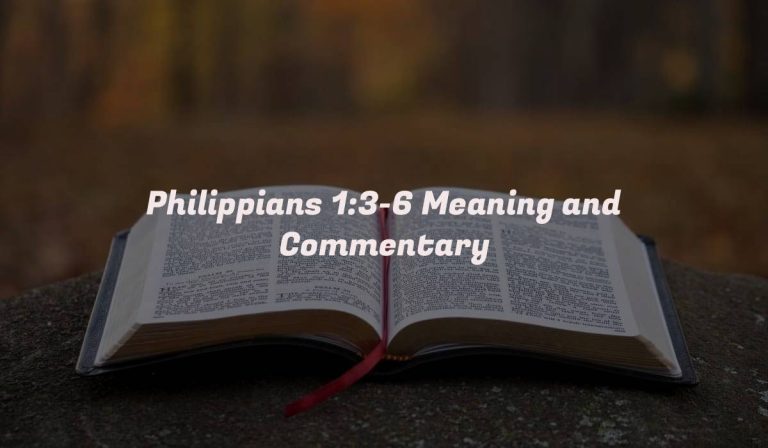Leviticus 13:1-8 Meaning and Commentary

Leviticus 13:1-8
The Lord said to Moses and Aaron, 2 “When anyone has a swelling or a rash or a shiny spot on their skin that may be a defiling skin disease, they must be brought to Aaron the priest or to one of his sons who is a priest.
3 The priest is to examine the sore on the skin, and if the hair in the sore has turned white and the sore appears to be more than skin deep, it is a defiling skin disease. When the priest examines that person, he shall pronounce them ceremonially unclean.
4 If the shiny spot on the skin is white but does not appear to be more than skin deep and the hair in it has not turned white, the priest is to isolate the affected person for seven days. 5 On the seventh day the priest is to examine them, and if he sees that the sore is unchanged and has not spread in the skin, he is to isolate them for another seven days. 6 On the seventh day the priest is to examine them again, and if the sore has faded and has not spread in the skin, the priest shall pronounce them clean; it is only a rash. They must wash their clothes, and they will be clean.
7 But if the rash does spread in their skin after they have shown themselves to the priest to be pronounced clean, they must appear before the priest again. 8 The priest is to examine that person, and if the rash has spread in the skin, he shall pronounce them unclean; it is a defiling skin disease.
Leviticus 13:1-8 Meaning
Leviticus 13:1-8 provides instructions on how to identify and handle cases of leprosy, a contagious skin disease, in biblical times. It emphasizes the importance of quarantine and the role of the priests in determining the person’s condition. This passage highlights the concern for the physical health and well-being of the community, as well as the spiritual implications of being ceremonially unclean.
Leviticus 13:1-8 Commentary and Explanation
In Leviticus 13:1-8, we see a portion of the Old Testament that addresses the intricate laws and regulations surrounding the identification and handling of skin diseases, particularly leprosy. This passage is essential not only for its historical and cultural context but also for the spiritual principles that it conveys. Let us unpack these verses together.
Verse 1 opens with the Lord speaking to Moses and Aaron, emphasizing the divine origin of these instructions. This reminds us that the laws presented here are not human-made but are ordained by God Himself. Therefore, they carry significant weight and significance in the life of Israel.
As we move to verse 2, we encounter the initial scenario: when a person develops an unusual swelling, rash, or discoloration on their skin, they are to be brought before a priest. The role of the priest is crucial here, as they serve as mediators between the people and God. This mirrors the concept of spiritual leaders who guide and help us navigate issues that affect our relationship with God today.
In verse 3, the priest examines the afflicted person’s skin. If the problem is superficial and does not spread, it is deemed a minor issue. However, if the issue covers a larger area and appears to be deeper, it raises concerns of a more serious nature. Here, we can see parallels to our spiritual lives. Superficial issues may represent minor sins that can be easily forgiven, while deeper issues may indicate persistent or more severe sins requiring a deeper examination of our hearts.
Verses 4-5 describe what the priest is looking for in greater detail. The presence of “white hair” in the affected area and the “raw flesh” beneath the surface are signs of potential leprosy. White hair is often associated with aging and wisdom in the Bible (Proverbs 16:31), and its presence in a skin condition may symbolize the wisdom gained through the spiritual maturity and understanding of our sins.
In verse 6, the priest isolates the person for seven days. This period of isolation mirrors the idea of self-reflection and repentance in our spiritual lives. We are often called to take time to examine our hearts and seek God’s guidance when facing sin or spiritual challenges.
Verse 7 discusses the outcome of the seven-day isolation. If the condition remains unchanged, it is considered minor, and the person is declared clean. However, if it spreads during this time, it is seen as a more severe issue, possibly signifying a deeper sin that needs addressing. This process reflects the importance of ongoing self-examination and the potential consequences of unaddressed sin.
Verse 8 provides a brief summary of the priest’s responsibilities and actions. They are to pronounce the person unclean and exclude them from the community if the disease has worsened. This act of exclusion demonstrates the seriousness of sin and its potential impact on the community. It also serves as a reminder of the need for repentance and reconciliation with God and others.
Leviticus 13:1-8 offers valuable insights into the spiritual principles of examination, repentance, and community accountability. While the specific regulations may not apply to us today, the underlying themes of self-reflection, seeking spiritual guidance, and addressing sin in our lives remain relevant. As we study these verses, let us remember the importance of seeking God’s wisdom and guidance in our journey of faith and repentance.
Context of Leviticus 13:1-8
The book of Leviticus is part of the Old Testament law, specifically focusing on the religious and ceremonial practices of the Israelites. Leviticus contains extensive instructions given by God to Moses for the people of Israel during their time in the wilderness.
Chapter 13 specifically addresses various conditions of the skin, including leprosy, and provides guidelines for identifying, handling, and managing these conditions. The purpose of these regulations was to uphold the purity and holiness of the Israelite community, ensuring their separation from anything unclean or impure.
Breaking Down the Key Parts of Leviticus 13:1-8
a) Leviticus 13:2 – “When a man has a swelling or a scab or a spot on the skin of his body that may become an infection of leprosy, he shall be brought to Aaron the priest or to one of his sons who are priests.”
This verse establishes the procedure for dealing with possible cases of leprosy. If a person had a suspicious skin condition, they were to be brought before the priest for examination.
b) Leviticus 13:3 – “The priest shall examine the mark on the skin of the body, and if the hair in the infection has turned white and the infection appears to be deeper than the skin of his body, it is an infection of leprosy; when the priest has examined him, he shall pronounce him unclean.”
The priests were skilled in examining the specific characteristics of the skin condition. If the hair in the infected area had turned white, it indicated a deeper infection, confirming the diagnosis of leprosy. In such cases, the person would be pronounced unclean.
c) Leviticus 13:4 – “But if the bright spot is white on the skin of his body, and it does not appear to be deeper than the skin, and the hair on it has not turned white, then the priest shall isolate him who has the infection for seven days.”
If the examination revealed a non-deeper infection with no white hair, the person would be isolated for a period of seven days for further observation.
d) Leviticus 13:7-8 – “But if the scab spreads farther on the skin after his cleansing, then the priest shall examine him, and if the scab has spread on the skin, the priest need not seek for the yellow hair; he is unclean.”
After the seven days of isolation, if the scab continued to spread, the priest could declare the person unclean without seeking any further confirmation.
Bible Study on Leviticus 13:1-8
This passage offers several important lessons for us today. It emphasizes the importance of taking care of our physical health and implementing measures to protect the community from contagious diseases. Just as the Israelites isolated those with leprosy, we need to be responsible in following health guidelines to prevent the spread of illnesses.
Furthermore, we can learn from the role of the priests in this passage. They were representatives of God entrusted with the responsibility of discerning spiritual matters. While we may not have priests in the same manner today, we can seek guidance from spiritual leaders, pastors, or mentors who can provide insight and wisdom in times of uncertainty.
We also see a reflection of God’s concern for both physical and spiritual well-being. While leprosy was a physical ailment, being declared unclean had spiritual implications. This reminds us that our actions and health affect our relationship with God. It is important to maintain holiness and purity in all areas of our lives.
Final Thoughts
Leviticus 13:1-8 provides practical instructions for diagnosing and handling cases of leprosy in biblical times. While we may not face the same circumstances today, we can learn valuable lessons from this passage.
We are called to prioritize our physical health and take appropriate measures to protect others. Additionally, we can seek guidance from spiritual leaders who can help us discern God’s will in our lives. Let us remember the importance of maintaining our spiritual purity and seek to live a life pleasing to God in all aspects.






